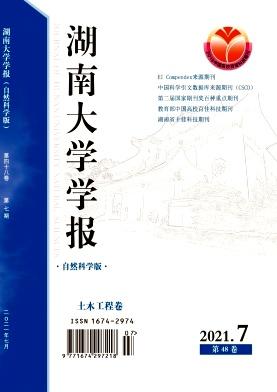Role of Pharmacists in Clinical Pharmacy Services in Saudi Arabia: A Survey of Knowledge, Attitude, and Practice
引用次数: 0
Abstract
Clinical pharmacy services significantly impact patient care and rapidly progress in the Saudi healthcare system. This study aimed to assess hospital pharmacists’ knowledge, attitude, and practice regarding clinical pharmacy services using a cross-sectional study design at seven government hospitals in Qassim, Saudi Arabia. In total, 236 hospital pharmacists were present in the Qassim region, where 176 reported providing clinical pharmacy services invited to participate. Out of 176 distributed questionnaires, 174 returned, giving a response rate of 98.86%. The number of clinical pharmacists in Qassim hospitals was only 5 (5.7%). The mean knowledge, attitude, and practice scores were 8.72±3.0, 29.39±4.1, and 16.3±3.1, respectively. Most pharmacists had a low level of knowledge about clinical pharmacy services 46 (52.3%). Knowledge scores were significantly associated with the highest academic qualification (p=0.02). Most pharmacists agreed that clinical pharmacists can provide 84 (95.5%) drug information and monitor patient response to drug therapy 82 (93.2%). Attitude scores were significantly associated with age (p=0.001). Practice scores were significantly associated with age (p=0.001) and nationality (p=0.001). Most services provided in hospitals were patient counseling 82 (93.2%). The most common barriers identified were lack of staff, training, and time. Recognizing the importance of clinical pharmacy services and the role of clinical pharmacists in healthcare settings is an essential step toward improving patient safety. Therefore, pharmacists need proper training in clinical pharmacy services to gain confidence. Keywords: knowledge, attitude, practice, pharmacists, clinical pharmacy services, Saudi Arabia. https://doi.org/10.55463/issn.1674-2974.50.9.4药师在沙特阿拉伯临床药学服务中的作用:知识、态度和实践的调查
临床药学服务显著影响患者护理和快速进展在沙特医疗保健系统。本研究旨在评估医院药剂师的知识,态度和实践有关临床药学服务采用横断面研究设计在卡西姆,沙特阿拉伯七家政府医院。卡西姆地区共有236名医院药剂师,其中有176名报告被邀请提供临床药学服务。共发放176份问卷,回收174份,回复率为98.86%。卡西姆医院临床药师人数仅为5人(5.7%)。知识、态度、实践的平均得分分别为8.72±3.0分、29.39±4.1分和16.3±3.1分。大部分药师对临床药学服务知识水平较低46(52.3%)。知识得分与最高学历显著相关(p=0.02)。大多数药师认为临床药师能提供药物信息84件(95.5%),监测患者对药物治疗反应82件(93.2%)。态度得分与年龄显著相关(p=0.001)。练习得分与年龄(p=0.001)和国籍(p=0.001)显著相关。医院提供的大部分服务是患者咨询(93.2%)。最常见的障碍是缺乏人员、培训和时间。认识到临床药学服务的重要性和临床药师在医疗环境中的作用是提高患者安全的重要一步。因此,药师需要在临床药学服务中接受适当的培训,以获得信心。关键词:知识、态度、实践、药师、临床药学服务、沙特阿拉伯https://doi.org/10.55463/issn.1674-2974.50.9.4
本文章由计算机程序翻译,如有差异,请以英文原文为准。
求助全文
约1分钟内获得全文
求助全文

 求助内容:
求助内容: 应助结果提醒方式:
应助结果提醒方式:


